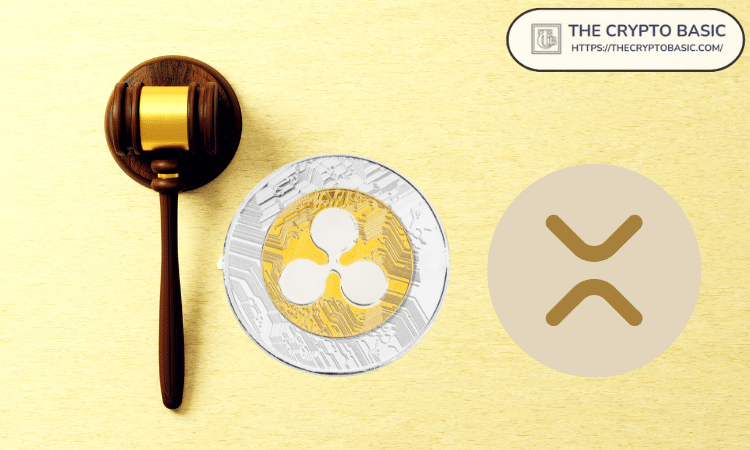Prominent blockchain company Ripple has addressed six misconceptions about Judge Torres’ XRP ruling in the SEC lawsuit.
Ripple Labs has addressed some misconceptions regarding Judge Analisa Torres’ decision in its case against the SEC.
Judge Torres’ Summary Judgment
Recall that on July 13, Judge Torres issued the much-anticipated summary judgment decision in the case. The Crypto Basic reported that the judge concluded XRP itself is not a security.
The court ruled that Ripple’s XRP programmatic sales on digital exchanges do not constitute investment contracts. However, she considered Ripple’s direct past XRP sales to institutional investors to be investment contracts.
Furthermore, the judge ruled that other XRP distributions to charities and employees are not securities themselves.
Meanwhile, there have been several misconceptions about the ruling. In its Q2 2023 report, Ripple highlighted six misconceptions about the ruling while taking time to address them.
First Misconception
Ripple addressed the first misconception that claims that the ruling is a split decision. The leading blockchain company clarified that Judge Torres’ ruling in the case is not a split decision.
It is worth noting that several media outlets have reported that the ruling gave the parties a partial victory. However, Ripple does not consider the ruling to be a split decision.
According to Ripple, the lawsuit has always been about getting regulatory clarity for XRP. Ripple noted that it has always said XRP is not a security, and the court vindicated that position.
It described the decision as a resounding win for the company and the entire industry. This is because other issuers can also follow the groundwork laid by Judge Torres to determine that their tokens, in and of themselves, are not securities.
Second Misconception
The second misconception is about claims that the ruling indicates that XRP is a security in some settings and not in others.
Critics have slammed the judge over her ruling in the case, especially her decision about Ripple’s XRP sales to institutional and retail investors.
Rep. Brad Sherman, one of the critics, described Judge Torres’ ruling as ridiculous. He said the judge concluded that “XRP is sometimes a security and sometimes not.”
Reacting to this misconception, Ripple Labs said XRP itself is never a security. Per Ripple, the court clarified that XRP is only a digital token and is not in and of itself an investment contract.
Third Misconception
Ripple addressed the third misconception, which has seen many argue that a share of stock is always a security and that it makes no sense for certain transactions in XRP to be securities while other transactions are not.
Ripple pointed out that an investment contract is a special type of security as defined by law. According to Ripple, the existence of an investment contract must be determined on a transaction-by-transaction basis.
It noted that the procedure is different for a traditional share of stock, which is always a security under the law.
Fourth Misconception
For the fourth misconception, Ripple focused on people who believe “the ruling is wrong because it protects institutional investors and not retail buyers.”
Ripple clarified that the court never said only institutional investors should be protected, not retail buyers. According to Ripple, the court ruled on the reach of the SEC’s jurisdiction, which ends when there are no more securities to regulate.
“Where there is no investment contract, there is no security; and where there is no security, there is no role for a securities commission,” it added.
Fifth Misconception
The blockchain company addressed the misconception that “the decision will make it impossible for Ripple to do business.”
Ripple noted that its customers and counterparties have always been outside of the US since the SEC introduced the lawsuit in December 2020.
According to Ripple, it has been partnering with non-US parties in jurisdictions where the rules are clear. Interestingly, the judge noted in the ruling that multiple foreign regulators, including regulators in Switzerland, Japan, the UK, and Singapore, determined that XRP is not a security.
Consequently, many companies outside of the US have been leveraging Ripple’s solutions, especially On-Demand Liquidity (ODL), for cross-border settlements.
Sixth Misconception
Ripple commented on the misconception that the judge ruled against its fair notice defense. The company said Judge Torres only ruled against its fair notice defense on institutional XRP sales.
However, the judge left open other fair notice defenses related to other types of transactions the SEC claims to be securities. Ripple explained that the court made the move because “the SEC’s theories as to the other sales in the case are inconsistent with its enforcement actions in previous digital asset cases.”
DisClamier: This content is informational and should not be considered financial advice. The views expressed in this article may include the author's personal opinions and do not reflect The Crypto Basic opinion. Readers are encouraged to do thorough research before making any investment decisions. The Crypto Basic is not responsible for any financial losses.



